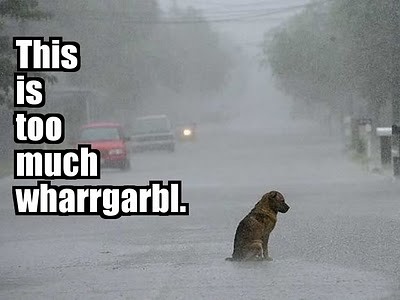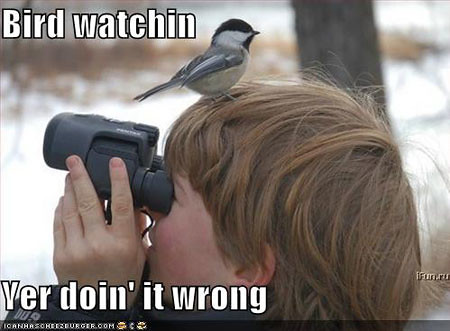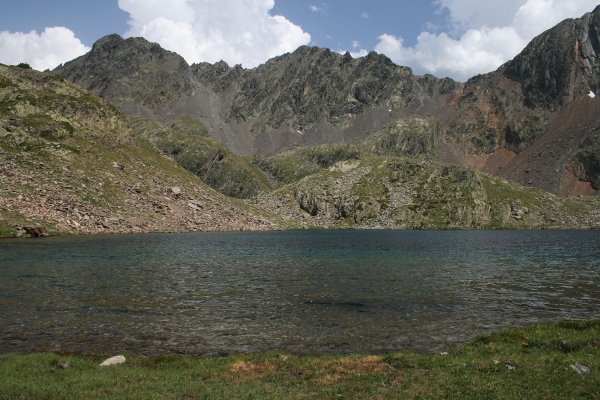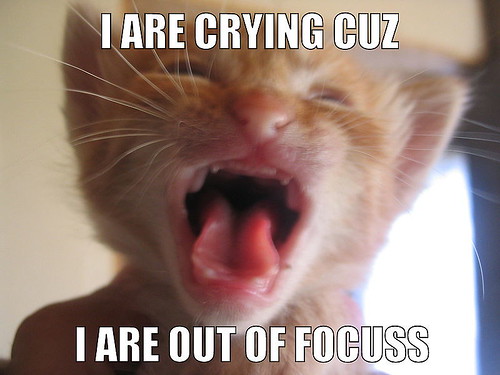It has been almost a full year since my
last log entry. It
has been a busy work year, I attended some nice conferences and did
minimal FLOSS stuff.
On the work side of things I was a third of an Australian VoIP startup
that came and went. I setup Debian servers, installed OpenSIPS and
associated software, wrote OpenSIPS scripts, wrote peripheral software
and did customer support. We had a good thing going there for a while,
some fans on the
Whirlpool forums but in the end
there wasn't enough money for the requisite marketing and local market
circumstances were squeezing Australian VoIP providers anyway.
On the conference side of things I went to
LCA 2010, the
Thai Mini-DebCamp 2010,
DebConf10 and
FOSSASIA 2010. Had a great time at all of them.
At
LCA 2010 in windy Wellington, New Zealand the distributions
summit organised by Martin Krafft was one of the highlights. It was
dominated by Debian/Ubuntu talks but there were some other interesting
ones, especially the one on GoboLinux's integration of domain-specific
package managers. Also excellent were the keynotes given by Gabriella
Coleman (Best & worst of times), Mako Hill (Antifeatures) and others,
which I felt gave LCA an improved and very welcome focus on software
freedom. There were quite a few Debian folks at LCA, it was great
to hang out with them during the week and afterwards.
Monopedal
sumo with mako and others was hilarious fun.
At the
Thailand Mini-DebCamp 2010 in Khon Kaen, I
was glad to see Andrew Lee (Taiwan) and Christian Perrier (France) again
and meet Yukiharu YABUKI (Japan) and Daiki Ueno (Japan). In addition to
the five international folks, there were quite a few locals, including
Thailand's currently sole Debian member, Theppitak Karoonboonyanan. The
event was hosted at Khon Kaen University and opened with my talk about
the Debian Social Contract and the Debian Free Software Guidelines. This
was followed by a number of talks about Debian package building, a
3-day
BSP where we touched 57 bugs, a great day of sightseeing and
talks about i18n, derivative distros, keysigning, mirrors, contribution
and a discussion about DebConf. During the week there was also the
usual beersigning, combined with eating of unfamiliar and "interesting"
Thai snacks. After the conference Andrew and I roamed some markets in
Bangkok and got Thai massages. Beforehand I also visited a friend from
my travels on the RV Heraclitus in Chiang Mai, once again
experiencing the awesomeness of trains in Asia, unfortunately during
the dry season this time. I took a lot of
photos during my
time in Thailand and ate a lot of great and spicy food. As a vegetarian
I especially appreciated the organiser's efforts to accommodate this
during the conference.
At DebConf10 in New York City, by far the highlight was
Eben Moglen's
vision of the
FreedomBox. Negotiating the
hot rickety subways was fun, the party at the NYC Resistor space was most
excellent, Coney Island was hot and the water a bit yuck, zack threw a
ball, the food and campus was really nice. Really enjoyed the lintian BoF,
ARM discussions, shy folks, GPLv3 question time, paulproteus' comments &
insights, wiki BoF, puppet BoF, derivatives BoF, Sita, astronomy rooftop,
cheese, virt BoF, Libravatar, DebConf11, Brave new Multimedia World,
bagels for breakfast, CUT, OpenStreetMap & lightning talks. Having my
power supply die was not fun at all. Afterwards I hung out with a couple
of the exhausted organisers, ate awesome vegan food and fell asleep
watching a movie about dreams. One weird thing about DebConf10 was that
relatively few folks used the DebConf gallery to host their photos,
months later only myself and Aigars Mahinovs posted any photos there.
At FOSSASIA 2010 in H Ch Minh City (HCMC) was a mini-DebConf. I
arrived at the HCMC airport and was greeted by Huyen (thanks!!), one of
FOSSASIA's numerous volunteers, who bundled me into a taxi bound for the
speakers accommodation and pre-event meetup at The Spotted Cow Bar. The
next day the conference opened at the Raffles International College
and after looking at the schedule I noticed that I was to give a talk
about Debian that day. Since I didn't volunteer for such a talk and had
nothing prepared, the schedule took me by surprise. So shortly after
an awesome lunch of
Vietnamese pancakes we gathered
some
Debian folks and
a random Fedora dude
and prepared
a short intro to Debian. The rest of the
day the highlights were the intro, video greetings and the fonts,
YaCy and HTML5 talks. The next day the Debian MiniConf began with
Arne Goetje and everyone trying to get Debian Live LXDE USB keys
booted on as many machines in the classroom as possible (many didn't
boot). Once people started showing up we kicked off with Thomas Goirand's
introduction to the breadth of Debian. Others talked about
Debian pure
blends, Gnuk and building community and packages. The
second last session was about showing the Vietnamese folks in the room
how to do l10n and translation since Debian had only one Vietnamese
translator (Clytie Siddall). After manually switching keyboard layouts
(seems LXDE doesn't have a GUI for that) on the English LXDE installs,
the two Cambodian folks were able to do some Khmer translation too. This
was a great session and it resulted in
two extra Vietnamese translators
joining Debian. It went over time so I didn't end up doing
my presentation about package reviewing. We rushed off to a university
where
the random Fedora ch^Wambassador was hosting a
Fedora 14 release party in a huge packed classroom. There
were a lot of excited faces, interesting and advanced questions and it
was in general a success. Afterwards we had some food, joined up with
some other speakers and ended up in a bar in the gross tourist zone. On
the final day we hung around in the Debian room, went downstairs for
the group photo and final goodbyes. Later we found a place with baked
goods, coffee and juices and navigated the crazy traffic to a nice local
restaurant. The next morning Arne & I went to the airport, others went on
a Mekong Delta tour and Jonas hung out with the organisers. I took less
photos than at other events but got a few interesting ones.
I avoided doing a lot of FLOSS stuff over the last year, I hope to work
on some things in the coming months;
- revive various (semi-)abandoned upstream projects
- do some more work on the Debian wiki
- contribute to RC bug squashing efforts
- push the VoIP company patches upstream
- contribute to debexpo/debshots/lintian/qa
- contribute to the Debian multimedia/FSO teams
- promote/organise/rejuvenate the Debian games team
- announce the Debian derivatives census more widely
- finish writing a SANE driver for my scanner
- finish the removal of defoma from Debian
- watch some videos from LCA and DebConf
I'm also planning some interesting travel and acquiring some new
technological goods, more on those in some later posts.
 Despite being on sabbatical last academic year, life was hectic and chaotic leaving me with next to no time to write entries here. Anonymous, which I had worked on for a few years, exploded. I was excommunicated from my house (due to a flood/something likely mold making be very sick) and had to commute to Princeton from the far reaches of Manhattan where I crashed at a friends house for 5 months, while fighting my landlords. I then decided to go on a job hunt primarily as I did not know what would happen with my housing situation in NYC but I was also pursuing some interesting opportunities. Though the housing issue was eventually resolved, in May a rare and enticing opportunity arose. Come January 2012 I will be joining the Art History and Communication Department at McGill University as the Wolfe Chair in Scientific and Technological Literacy.
The decision to leave MCC NYU was torturous. The faculty is stellar. The graduate students are top notch and cream of the crop. And the digital media faculty is a force of nature, perhaps one of the deepest and most dynamic departments when it comes to the study of digital media. They also know how to treat their junior faculty right, which made it a place I respected and am deeply indebted to.
But this type of opportunity is rare and it helped that NYC as wonderful as it is, is not my cup of tea. I wanted to eventually settle in one of the large Canadian cities, and Montreal was on the top of my list. I get to join one of the best universities in the world and a department whose work on digital media, STS, and politics converges with much of my own.
The position provides resources, time, and room to cultivate scholarly work, help build a program of some sort in Science Technology Studies at McGill, and also engage with the public about the ethics and politics of science and technology. I will be teaching a class to joint BA/BS majors on scientific and technological controversies, a topic close to my heart. I also hope to create an open courseware website for my hacker course, which I will teach sometime in the 2012-2013 academic year.
It is all that I can ask for, well, except for the weather. I would be lying if I did not admit that the winter scares the heck out of me I know some days I will feel just like this .
Despite being on sabbatical last academic year, life was hectic and chaotic leaving me with next to no time to write entries here. Anonymous, which I had worked on for a few years, exploded. I was excommunicated from my house (due to a flood/something likely mold making be very sick) and had to commute to Princeton from the far reaches of Manhattan where I crashed at a friends house for 5 months, while fighting my landlords. I then decided to go on a job hunt primarily as I did not know what would happen with my housing situation in NYC but I was also pursuing some interesting opportunities. Though the housing issue was eventually resolved, in May a rare and enticing opportunity arose. Come January 2012 I will be joining the Art History and Communication Department at McGill University as the Wolfe Chair in Scientific and Technological Literacy.
The decision to leave MCC NYU was torturous. The faculty is stellar. The graduate students are top notch and cream of the crop. And the digital media faculty is a force of nature, perhaps one of the deepest and most dynamic departments when it comes to the study of digital media. They also know how to treat their junior faculty right, which made it a place I respected and am deeply indebted to.
But this type of opportunity is rare and it helped that NYC as wonderful as it is, is not my cup of tea. I wanted to eventually settle in one of the large Canadian cities, and Montreal was on the top of my list. I get to join one of the best universities in the world and a department whose work on digital media, STS, and politics converges with much of my own.
The position provides resources, time, and room to cultivate scholarly work, help build a program of some sort in Science Technology Studies at McGill, and also engage with the public about the ethics and politics of science and technology. I will be teaching a class to joint BA/BS majors on scientific and technological controversies, a topic close to my heart. I also hope to create an open courseware website for my hacker course, which I will teach sometime in the 2012-2013 academic year.
It is all that I can ask for, well, except for the weather. I would be lying if I did not admit that the winter scares the heck out of me I know some days I will feel just like this .


 Tomorrow, at this time, I'll probably be unsuccessfully trying to find a
comfortable position on a seat of the Bilmanbus to Irun. Very early
on Saturday, as soon as we get off the bus, Maria and I will quickly head to
Hondarribia's beach in Cape Higer to symbolically wet our feet in the waters
of the Cantabrian Sea.
We won't have much time to enjoy the cold waters of the ocean, though.
Soon after that, we'll have to take a deep breath, look East, and start
walking if we want to achieve our utmost objective: take a bath in the
beautiful beaches of the Cap de Creus, in the Mediterranean sea. In between,
30 days and 840 kilometres of thick woods, deep valleys, high peaks and cold
waters, all of which shape incredible landscapes.
Tomorrow, at this time, I'll probably be unsuccessfully trying to find a
comfortable position on a seat of the Bilmanbus to Irun. Very early
on Saturday, as soon as we get off the bus, Maria and I will quickly head to
Hondarribia's beach in Cape Higer to symbolically wet our feet in the waters
of the Cantabrian Sea.
We won't have much time to enjoy the cold waters of the ocean, though.
Soon after that, we'll have to take a deep breath, look East, and start
walking if we want to achieve our utmost objective: take a bath in the
beautiful beaches of the Cap de Creus, in the Mediterranean sea. In between,
30 days and 840 kilometres of thick woods, deep valleys, high peaks and cold
waters, all of which shape incredible landscapes.

